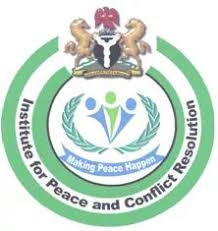The Institute for Peace and Conflict Resolution (IPCR) foresaw the emergence of the Boko Haram insurgency as early as 2007, the Director-General of the institute, Dr Bakut Bakut, has disclosed.
He said the institute also picked warning signals of the current crisis between farmer/herders and alerted the Federal Government which however, ignored the warnings.
“One of the things that I would like to say and I always say it with caution is, in 2007, this institute could predict that the intolerance that we saw, particularly in terms of religion and strict application of doctrines in the Northeast, we saw it becoming a problem. We warned them, but obviously maybe we did not warn enough and today we have what we call Boko Haram.
“The same thing we saw again in 2012, the danger of what has become the farmer-herder issues. Again we warned but again, maybe we did not warn enough. So, what we have now done is to make sure that we do not just warn but go into the environment and try to intervene directly. These are the things that we have done to make sure that between 2000 and today, we operate within the context of our mandate”, Bakut said at a News Agency of Nigeria (NAN) forum in Abuja.
He explained that based on the growing rate of religious intolerance and strict application of certain doctrines in the Northeast, which the institute noticed, IPCR had to alert the Federal Government at the time.
He said as a proactive measure, the IPCR had prepared a National Peace Policy and handed it over to the government, which in turn presented it to the United Nations (UN).
According to him, the policy formed the basis for a UN Security Council resolution asking other African countries to follow Nigeria’s moves.
“In that period, the Federal Government under the presidency of Olusegun Obasanjo, set up a Presidential Implementation Committee on our findings and established a Presidential Implementation Plan.
The directors of the IPCR then were working on strategies that would help solve some of the problems but something happened and that one went out. By 2007, when the government was going, we were moved to the Federal Ministry of Foreign Affairs.
Unlike before when we sent our policy directly to the president, we now have to go through the ministry.”
Bakut noted that changes in the country’s administration and changes in the institute’s supervisory body might have scuttled plans to act on the institute’s forecasts over the years.

